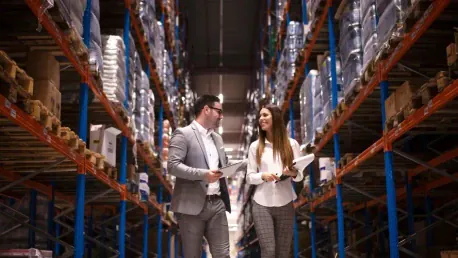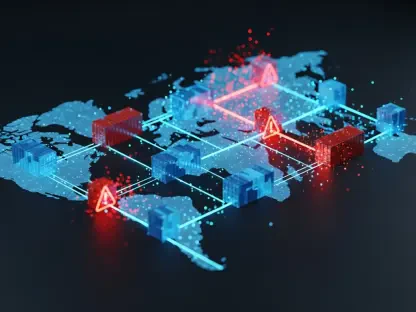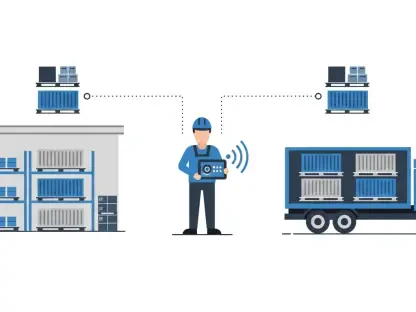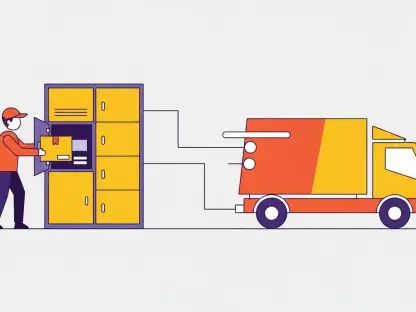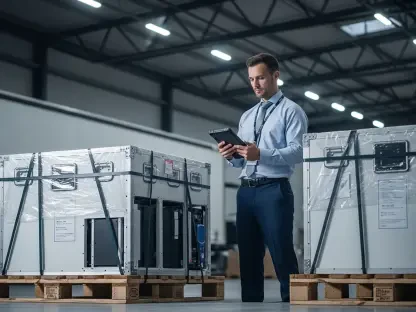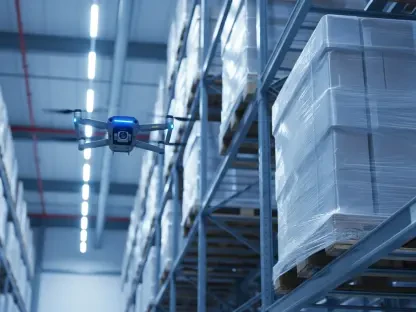The logistics sector is making substantial strides toward integrating sustainability and advanced technology into its operations, as highlighted in the latest November 2024 issue of Logistics Manager. Significant advancements include Maersk’s launch of a new vessel powered by green methanol, spotlighting the industry’s transition towards eco-friendly fuel alternatives. This initiative reflects a broader commitment to sustainable practices. Insights from leaders at Maersk, Primark, and the Department for Transport demonstrate a collective move toward reducing environmental impact.
Green Transport and Environmental Initiatives
One of the standout stories in recent logistics developments is Maersk’s newest vessel running on green methanol. This vessel aligns perfectly with global sustainability goals, marking a significant milestone in reducing the carbon footprint associated with shipping. Leaders from Maersk have outlined their ambition to lead industry-wide green initiatives, urging other companies to adopt similar measures. Primark and the Department for Transport also shared their insights on transitioning toward greener logistics practices, underlining the importance of sustainable transport solutions.
Further discussions by columnists like Malory Davis and Benet Northcote emphasize the urgency of integrating environmental considerations into logistics operations, especially with key events like the COP29 climate conference in Azerbaijan on the horizon. Their analyses reflect a keen understanding that the future of logistics hinges on its ability to respond actively to climate challenges. This includes investing in technologies and infrastructure that minimize environmental impacts and enhance efficiency. The emphasis is shifting toward creating logistics models that are not only economically viable but also environmentally responsible.
Technological Advancements and Efficiency
Technological innovation is at the forefront of transforming logistics. John Thornton’s discussion on supply chain visibility technologies illustrates how transparency, resilience, and agility are becoming critical components. Advanced technologies, such as Warehouse Management Systems (WMS) and Warehouse Execution Systems (WES), are revolutionizing warehouse operations, as examined by Kirstie Pickering. These systems facilitate enhanced automation, improved accuracy in order fulfillment, and optimized inventory management, significantly boosting overall operational efficiency.
The use of Artificial Intelligence (AI) for demand prediction further exemplifies how technology is being leveraged to streamline logistics operations. James McLoughlin’s exploration into AI applications highlights the importance of predictive analytics in managing peak retail seasons. By accurately forecasting demand, companies can better prepare by adjusting staffing levels, optimizing inventory, and ensuring timely product deliveries. This proactive approach helps mitigate the risks associated with sudden spikes in demand, ensuring a seamless supply chain function.
Strategic Planning and Market Trends
Johanna Parsons brings attention to the resurgence in the uptake of large industrial and logistics properties. This trend signifies a growing demand for expansive warehousing and distribution centers, driven by the need for efficient logistics networks. Long-term investment strategies are essential to meet this demand, especially considering the high rents in prime warehousing areas. The implications of these market trends call for strategic planning and meticulous investment to ensure sustainable growth and competitiveness in the logistics sector.
The recent planning system reforms under the newly elected Labour government also hold significant implications for the logistics industry. These reforms aim to streamline approval processes and encourage the development of logistics infrastructure, addressing the sector’s burgeoning needs. Strategic planning and investment in infrastructure are imperative to navigate these emerging challenges and capitalize on opportunities. The logistics sector is poised for a transformative journey, with sustainability, technological innovation, and strategic foresight shaping its future trajectory.
The November 2024 issue of Logistics Manager illuminated how sustainability and technology are at the heart of the logistics sector’s evolution. The concerted efforts by industry leaders to embrace greener practices and technological advancements underscore a proactive approach to meeting current and future challenges. As the sector continues to innovate and adapt, transparency, resilience, and strategic planning evidently became the keystones for modern, sustainable logistics.
